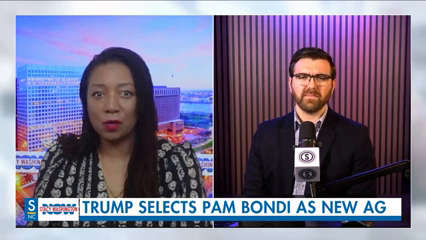India's Capital Introduces Stricter Anti Pollution Measures Amid Toxic Smog
1 week ago
India's government banned non-essential construction in New Delhi, the world's most polluted capital, and urged residents to avoid burning coal for heating, to combat worsening air quality that has disrupted flights and obscured the Taj Mahal.
The new measures, which include sprinkling water with dust suppressants on roads, as well as mechanised sweeping that would help settle dust, will come into effect from Friday morning.
Delhi's Chief Minister Atishi, who uses only one name, also directed all primary schools to shift to online classes.
They also include a ban on non-essential construction and an appeal to citizens to use more public transport and avoid using coal and wood for heating, a government release said on Thursday, without saying how long the measures would be in place.
Air quality in Northern India has deteriorated over the past week, with toxic smog obscuring India's famed monument to love, the Taj Mahal, about 220 km (136 miles) from New Delhi, as well as Sikhism's holiest shrine, the Golden Temple in Amritsar.
New Delhi has a severe air quality level of 424, according to live rankings kept by Swiss group IQAir, the worst amongst global capitals.
The city battles smog - a toxic mix of smoke and fog - every winter as cold air traps dust, emissions, and smoke from illegal farm fires.
Around 38% of the pollution in New Delhi this year has been caused by stubble burning - a practice where stubble left after harvesting rice is burnt to clear fields - in the neighbouring states of Punjab and Haryana.
Delhi flights faced delays, with tracking website Flightradar24 showing 88% of departures and 54% of arrivals were delayed as of Thursday afternoon due to smog.
The new measures, which include sprinkling water with dust suppressants on roads, as well as mechanised sweeping that would help settle dust, will come into effect from Friday morning.
Delhi's Chief Minister Atishi, who uses only one name, also directed all primary schools to shift to online classes.
They also include a ban on non-essential construction and an appeal to citizens to use more public transport and avoid using coal and wood for heating, a government release said on Thursday, without saying how long the measures would be in place.
Air quality in Northern India has deteriorated over the past week, with toxic smog obscuring India's famed monument to love, the Taj Mahal, about 220 km (136 miles) from New Delhi, as well as Sikhism's holiest shrine, the Golden Temple in Amritsar.
New Delhi has a severe air quality level of 424, according to live rankings kept by Swiss group IQAir, the worst amongst global capitals.
The city battles smog - a toxic mix of smoke and fog - every winter as cold air traps dust, emissions, and smoke from illegal farm fires.
Around 38% of the pollution in New Delhi this year has been caused by stubble burning - a practice where stubble left after harvesting rice is burnt to clear fields - in the neighbouring states of Punjab and Haryana.
Delhi flights faced delays, with tracking website Flightradar24 showing 88% of departures and 54% of arrivals were delayed as of Thursday afternoon due to smog.









